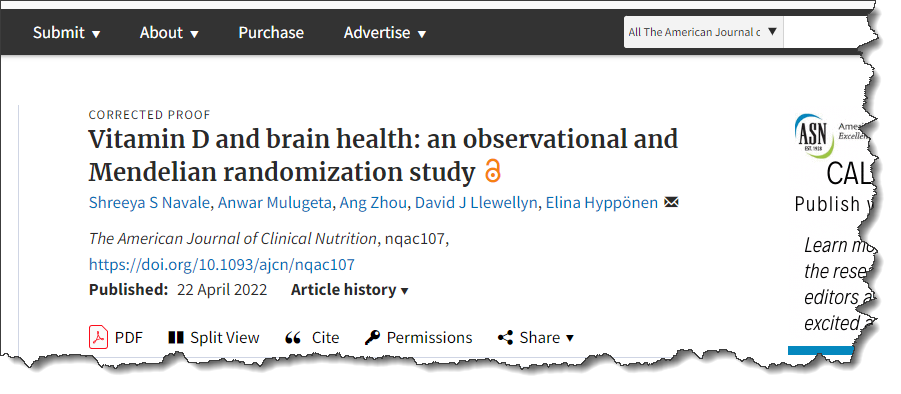
This is why I stopped wearing sunscreen
Unsubscribe | Report as spam | Change email preferences
Story-At-a-Glance
Hey, Matt Cook here, and there is a current hysteria around sun exposure that is completely… weird.
You are supposed to always protect yourself from the “damaging” effects of the sun.
Whoever made up these rules is bonkers.
Here’s what I’m doing instead, and why it’s giving me major benefits as a man…
—-Important Message from Adam Armstrong—-
What the Japanese are doing for high blood pressure
In America, most men with high blood pressure just take a Big Pharma treatment.
And while this lowers the numbers on the cuff, it doesn’t actually fix high blood pressure.
So it lulls men into a false sense of security…
They think they’re protected against heart attacks and strokes because they’re taking a treatment from the doc…
But then one day without any warning, a man on blood pressure treatments may fall to the ground clutching his chest in extreme pain…
While his wife, children, or grandchildren watch on in horror…
And that’s why the Japanese are doing things differently when it comes to high blood pressure…
In fact, they are treating blood pressure VERY differently than us here in the West…
Please check out this short report to see what they’re doing – it may save your life
———-
Sunscreen is scrambling men’s brains
The current “rules” about sun exposure mean that people are always wearing sunscreen when they go outdoors…
…and as a result simply aren’t getting enough vitamin D in their system for optimal health.
Vitamin D can be taken as a supplement, but it’s not always super effective that way.
It’s much more effective to get sun exposure, because your body will make vitamin D from the sunlight.
Even a few minutes a day of sun exposure can make a big difference.
Personally, I think that these “rules” about sun exposure are widely driven by the sunscreen industry, which has exploded in the last 30 years or so.
The actual data behind sun exposure is quite different than what you’ve been taught.
Having higher vitamin D levels in the blood is beneficial to the brain, as well as many other systems in the body.
People who have low levels of vitamin D are at higher risk of having a stroke and have a higher risk of dementia.
Low vitamin D status was associated with neuroimaging outcomes and the risks of dementia and stroke even after extensive covariate adjustment. MR analyses support a causal effect of vitamin D deficiency on dementia but not on stroke risk.
Vitamin D is neuroprotective and can help prevent neurodegeneration.
The problem is that vitamin D deficiency is rampant, especially in older populations.
In one study it showed that up to 100% of older populations didn’t get enough vitamin D!
It is estimated that between 40% and 100% of older, community-living adults in the United States and Europe are vitamin D deficient.
In my experience, the numbers of 40% to 100% of people being vitamin D deficient don’t just apply to older populations…
…but to nearly everyone.
Low vitamin D levels are a real problem.
They can increase the risk of bone fractures, and inhibit the ability of the brain to clear out the formations that cause Alziehmer’s.
Vitamin D deficiency is associated with fractures, various chronic conditions, and mortality. Cognitive decline and dementia are also common in older adults, although their causes remain unclear. Vitamin D may help to prevent neurodegeneration because it plays an important role in the expression of neurotrophic factors, neurogenesis, calcium homeostasis, detoxification, and β-amyloid clearance.
You can take vitamin D supplements to increase your vitamin D levels.
If you’re going to take supplements, make sure you are taking D3 and not any other type of D.
The problem is that supplements are hit and miss on whether or not they actually raise your vitamin D levels.
Your best bet is to get regular, daily sun exposure.
This doesn’t have to be for hours at a time, and you should take care not to burn as much as possible.
15 or 20 minutes of sun exposure a day can make a huge difference in the amount of vitamin D that your body creates for you.
Personally, I go for a walk on the beach with my shirt off nearly every day when I’m in Florida.
When I’m in Virginia, I still walk outside, but usually in a short-sleeve shirt.
This is more difficult to do in wintertime, but I still try to get outside with some exposed skin, even in the winter.
Direct sunlight is hugely beneficial because of the creation of vitamin D.
—-Important Message For Guys—-
Can you spare 45 seconds for bigger, stronger muscles?
Because that’s all it takes to burn body fat and build strong, lean muscle.
I’ve discovered a simple 45-second activity that allows you to build stronger, firmer muscles… including the muscle between your legs…
There’s no dieting, cutting carbs, starving yourself, or gym memberships involved…
When you use this 45-second activity, your body transforms into a leaner, stronger, healthier machine…
And when you take your hot wife or girlfriend to bed, you impress her with a stiffer, firmer, longer-lasting rod…
———-



